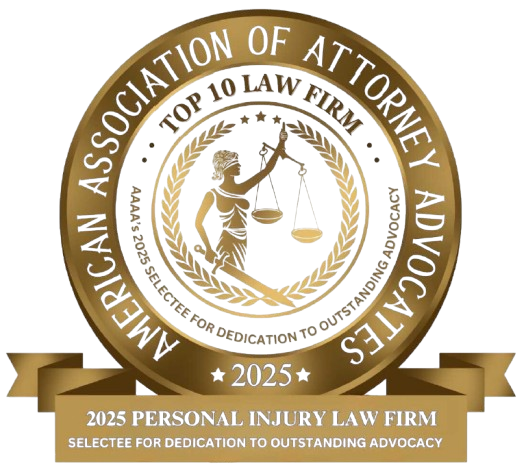
Understanding Texas Motorcycle Laws
Texas has specific regulations designed to protect motorcyclists and others on the road. Familiarizing yourself with these laws is crucial for safe riding.
Helmet Requirements
All riders and passengers under 21 must wear a helmet that meets Department of Transportation (DOT) standards in Texas. Riders aged 21 and over may ride without a helmet if they have completed a state-approved motorcycle operator training course or carry health insurance covering injuries from a motorcycle accident. Despite these provisions, wearing a helmet is always strongly recommended for safety.
Licensing and Training
To operate a motorcycle in Texas, individuals must obtain a Class M license. This involves passing a written test and a road skills exam. Completing a motorcycle safety course is highly beneficial as it enhances riding skills and may also be required for certain licensing exemptions.
Lane Splitting
Lane splitting, or riding between slow-moving or stopped traffic lanes, is illegal in Texas. Motorcyclists must adhere to standard traffic lanes and follow the same rules as other vehicles.
Fort Worth Motorcycle Accident Statistics
Understanding local accident data underscores the importance of vigilant riding and adherence to safety practices.
Statewide Overview
In 2022, Texas reported 9,528 motorcyclists involved in crashes, resulting in 563 fatalities and 5,264 serious injuries. Notably, 48% of those killed or seriously injured were wearing helmets, highlighting the critical role of protective gear.
Fort Worth Specific Data
Fort Worth ranked third among Texas cities for motorcycle fatalities in 2023, with a significant number of deaths and serious injuries. This statistic emphasizes the need for heightened awareness and safety measures among local riders.
Essential Safety Tips for Motorcyclists
Adopting proactive safety measures can significantly reduce the risk of accidents and injuries.
Wear Appropriate Protective Gear
Always wear a DOT-approved helmet, regardless of age or experience. Invest in protective clothing such as jackets, gloves, long pants, and over-the-ankle boots to safeguard against injuries.
Stay Visible
Enhance your visibility by wearing bright or reflective clothing and using your motorcycle’s headlights, even during daylight hours. Position yourself in lanes where you’re most visible to other drivers, and avoid lingering in blind spots.
Practice Defensive Riding
Anticipate the actions of other drivers and be prepared to react accordingly. Maintain a safe following distance, be cautious at intersections, and always signal your intentions well in advance.
Avoid Riding Under the Influence
Never operate your motorcycle under the influence of alcohol or drugs. Impairment significantly reduces reaction times and decision-making abilities, increasing the risk of accidents.
Regular Motorcycle Maintenance
Perform regular maintenance checks to ensure your motorcycle is in optimal condition. Pay attention to tire pressure, brake functionality, lights, and fluid levels to prevent mechanical failures on the road.
What to Do After a Motorcycle Accident
Despite all precautions, accidents can still occur. Knowing the appropriate steps to take can protect your rights and facilitate recovery.
- Seek Immediate Medical Attention: Prioritize your health by getting evaluated by medical professionals, even if injuries seem minor.
- Document the Scene: If possible, take photographs of the accident scene, your motorcycle, other vehicles involved, and any visible injuries.
- Obtain Witness Information: Collect contact details from witnesses, as their statements can be valuable during legal proceedings.
- Report the Accident: File a report with local law enforcement to ensure an official incident record.
- Consult a Motorcycle Accident Attorney: Engage with a legal professional experienced in motorcycle accidents to understand your rights and explore options for compensation.
How Patterson Law Group Can Assist
At Patterson Law Group, we specialize in representing motorcyclists involved in accidents. Our team is dedicated to ensuring you receive the compensation you deserve for medical expenses, lost wages, and other damages.
Expertise in Motorcycle Accident Cases
Our attorneys have extensive experience handling motorcycle accident claims in Fort Worth. We understand the unique challenges motorcyclists face and are adept at navigating the complexities of these cases.
Comprehensive Legal Support
We provide end-to-end legal support tailored to your situation, including investigating the accident, gathering evidence, negotiating with insurance companies, and representing you in court if necessary.
Client-Centered Approach
We prioritize clear communication and personalized service, ensuring you’re informed and supported throughout the legal process. Our goal is to alleviate the stress associated with legal proceedings so you can focus on recovery.
Frequently Asked Questions: Fort Worth Motorcycle Safety Tips
 What is the most dangerous time of day to ride a motorcycle in Fort Worth?
What is the most dangerous time of day to ride a motorcycle in Fort Worth?
According to the Texas Department of Transportation, most motorcycle crashes occur during the evening rush hour between 5 p.m. and 7 p.m., especially on weekdays. Reduced visibility, traffic congestion, and driver fatigue increase the risk. If possible, avoid riding during these peak hours or take extra precautions.
Are motorcycles required to pass vehicle inspections in Texas?
Yes. In Texas, motorcycles must undergo an annual safety inspection, just as passenger vehicles do. This includes checking lights, horns, brakes, tires, and other essential components. A valid inspection is required to renew your registration and legally operate the motorcycle on public roads.
What types of motorcycle insurance are required in Texas?
Texas law mandates minimum liability coverage for motorcycles: $30,000 for bodily injury per person, $60,000 per accident, and $25,000 for property damage. Riders should consider adding uninsured/underinsured motorist protection, collision coverage, and comprehensive insurance to ensure broader financial protection in case of a crash.
Can I use a GoPro or camera on my helmet while riding in Texas?
Yes, riders can use helmet-mounted cameras for recording rides, which can be especially helpful if you’re ever involved in a crash. Just ensure the attachment does not compromise the helmet’s structural integrity or violate DOT standards.
How can weather conditions affect motorcycle safety in Fort Worth?
Sudden storms and high winds are common in North Texas and can significantly impact motorcycle stability. Wet roads reduce traction, and wind gusts can throw riders off balance. Check the forecast before heading out, and consider postponing your ride in severe weather conditions.
Protect Yourself on the Road with Our Fort Worth Motorcycle Safety Tips
Motorcycling in Fort Worth requires legal knowledge, safety awareness, and proactive measures to ensure a secure riding experience. By adhering to Texas motorcycle laws, staying informed about local accident statistics, and implementing essential safety tips, riders can significantly reduce their risk on the road.
Should an accident occur, Patterson Law Group provides the legal assistance and support needed to navigate the aftermath effectively. We can help you file a claim and protect your rights.




 What is the most dangerous time of day to ride a motorcycle in Fort Worth?
What is the most dangerous time of day to ride a motorcycle in Fort Worth?




